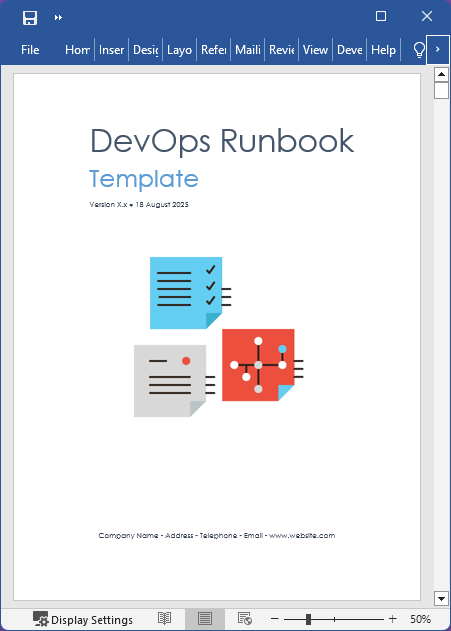Procedure Writing
Stop Firefighting: Introducing New DevOps Runbook Template
If you work in DevOps, or have just moved to this role, you want to be certain that each and every procedure is documented somewhere. The last thing you want is one of your team leaving and taking all the knowledge they have with them.
To avoid this happening, I’d suggest you create runbooks for each specific action you want your team to follow. Once you have the runbooks in place, it’s easier to focus on the more strategic actions to develop your team. Without them, you’re always flying by the seat of your pants.
In a small company, or a startup, you can get away with this for a while. However, as you scale, solid reliable runbooks are what’s needed to ensure reliable deployments.
For that reason, I’ve been working on a series of runbook templates to help new team leads, such as those in DevOps.
That’s why we’re excited to introduce the Klariti DevOps Runbook Template—a framework designed to help you capture, standardize, and execute your most critical operational procedures with confidence. This isn’t just another blank document; it’s your blueprint for building a more resilient and efficient operations practice.
1. Standardize Excellence, Eliminate Tribal Knowledge
A great runbook ensures that every procedure is performed the right way, every time, by anyone on your team. This template provides a consistent structure for everything from system restarts to complex database migrations.
By documenting your processes, you create a single source of truth that empowers your entire team and makes critical knowledge accessible to everyone, not just a select few.
2. Accelerate Incident Response and Reduce Downtime
During an incident, every second counts. Fumbling for the right command or diagnostic tool is time you can’t afford.
Our template includes dedicated sections for Troubleshooting, Rollback, and Recovery, providing clear, step-by-step instructions when the pressure is on. This helps you drastically reduce your Mean Time To Recovery (MTTR) and restore service faster.
3. Reduce Human Error and Operational Risk
Memory is fallible, especially during a stressful deployment. The DevOps Runbook Template minimizes risk by enforcing a methodical approach.
With pre-execution checklists, explicit validation steps, and a clear command reference, you can catch potential mistakes before they impact production, leading to safer deployments and more reliable systems.
Main Benefits to DevOps Managers
We know your team is busy. That’s why we designed this template to save you time, not create more work:
- Don’t Start from Scratch: Building a comprehensive runbook structure can take days. Our template gives you 11 professionally structured sections, covering everything from system architecture to post-mortems, so you can start documenting immediately.
- Streamline Onboarding: Instead of a senior engineer spending hours with a new hire, this runbook acts as a practical training guide, accelerating their path to becoming a productive team member.
- We Guide You Through the Writing: The biggest challenge in documentation is often knowing what to write. Each section of our template includes clear Writing Instructions and Template Text prompts, telling you exactly what information to include and why it’s important. It’s like having a technical writer guiding you every step of the way.
Build the Runbooks Your Team Deserves
Stop letting undocumented procedures dictate your operational success. Invest in a process that promotes clarity, consistency, and resilience.

